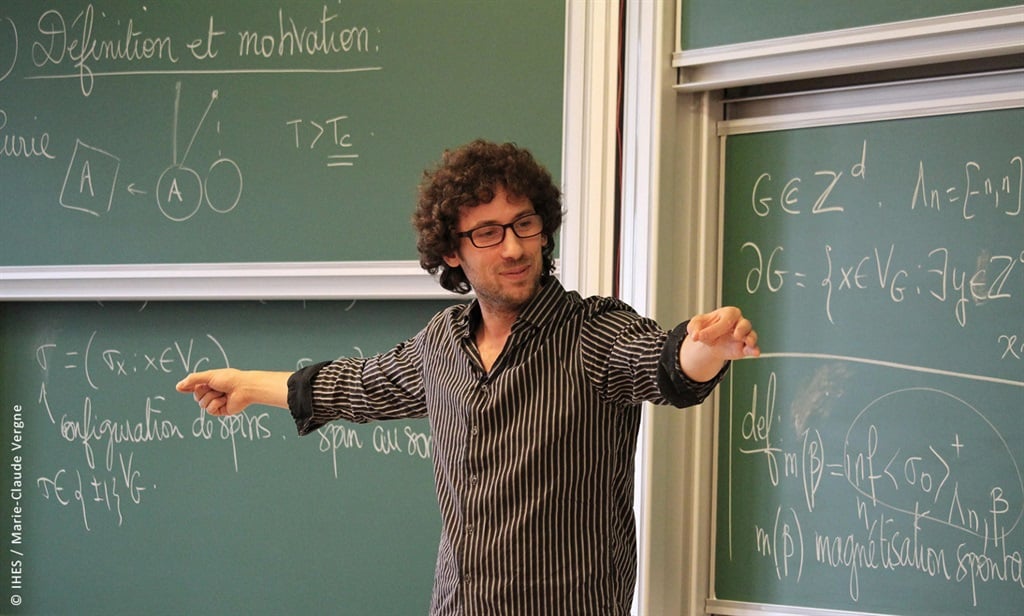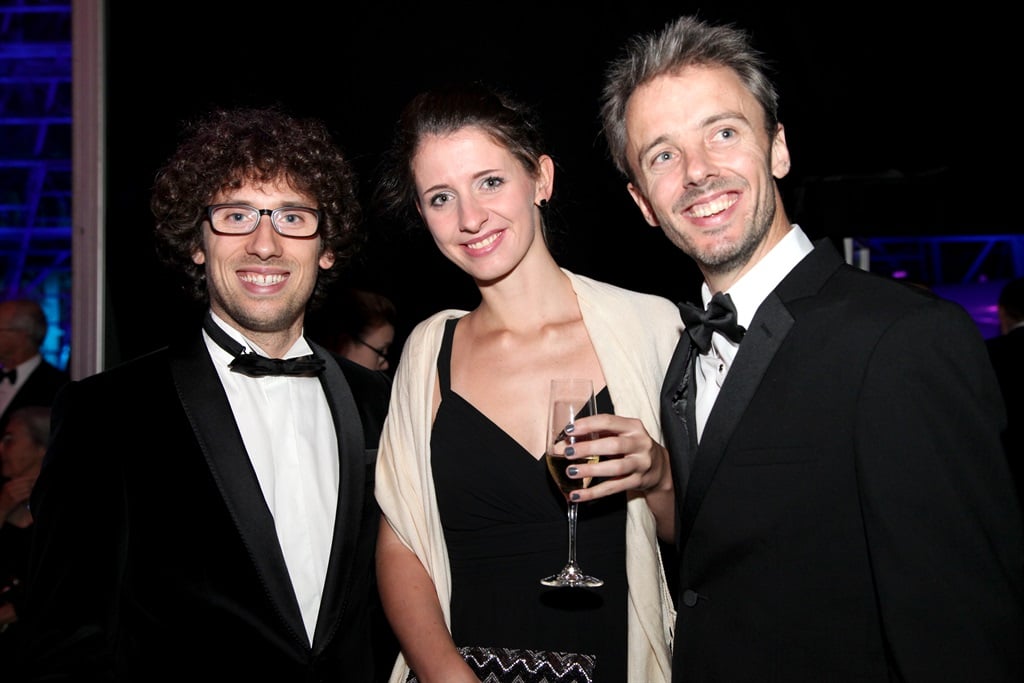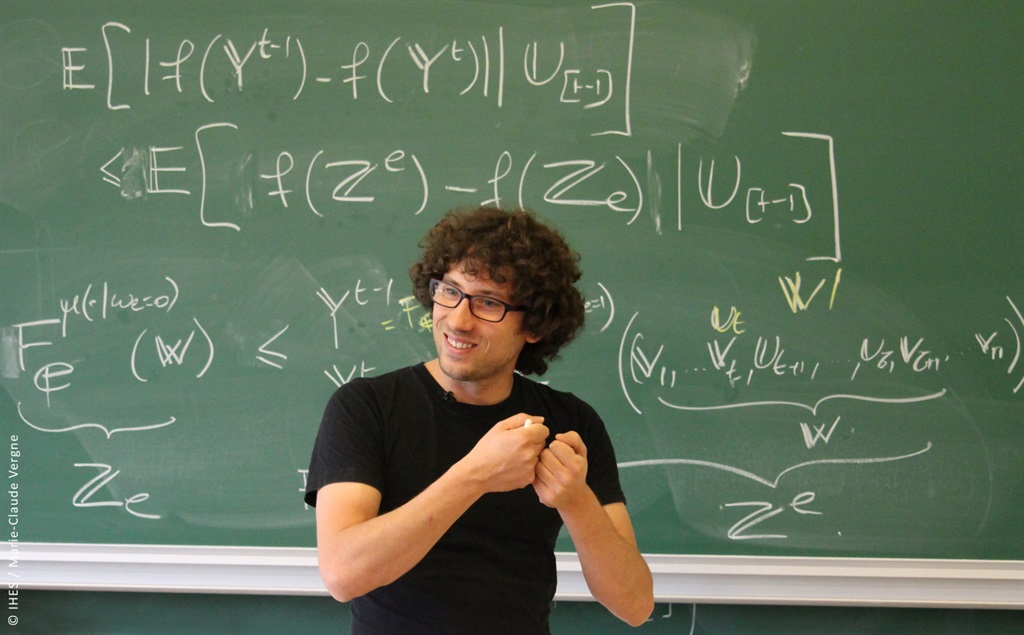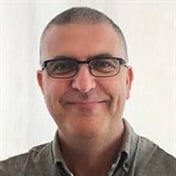
Epidemiologist Prof Alex Welte speaks to Prof Hugo Duminil-Copin, a professor of mathematics at the University of Geneva and the Institut des Hautes Études Scientifiques (IHES), and who earlier this year became a recipient of a 'Fields Medal' – much like a Nobel Prize in Mathematics.
Hugo Duminil-Copin is a professor of mathematics at the University of Geneva and the Institut des Hautes Études Scientifiques (IHES), and just earlier this year became a recipient of a 'Fields Medal' – much like a Nobel Prize in Mathematics – in recognition of his deep improvements in how to think about some mathematical structures that help us understand real world things like magnets. He spends much of his time teaching mathematics to undergraduates, and so when he reflects on what it means to help people find the "enjoyment" and ("maybe even better") "satisfaction" in doing mathematics, we should probably listen.
One of the first things he told me when we spoke via videocall was, "If you want to learn to cook, it's not sufficient to just taste the food. You also need to have an idea of how it was made."
We discussed how the pressure to cover a bloated curriculum can make it difficult to go beyond a neat presentation of results. How can we expose learners to the process of trial and error, the many false starts and dead ends, and the partial insights that break complex problems into manageable pieces. "You want to teach them how to think. If they know how to think, they will actually learn [new details] very easily, and you could reduce immensely the amount of things you teach."
Similar issues in France
When I described some of the maths teaching/learning issues we face here in South Africa, he remarked that "that's what you can see also with France and basically everywhere, and this is also maybe due to the amount of things that we ask our students to know, right? I mean, they are definitely living in a world where there is much more information than what we were facing, you know, in our youth".
At 54 years, I'm old enough to be Duminil-Copin's father, and he considers today's students to be living in a "different world" than "we” “in our youth". You don't have to look far to find the exhortation to 'thrive' on 'change', to 'pivot' from one thing to the next, to 'innovate', 'disrupt' and 'adapt'. But moving fast is not the only way to cope, and not something that even comes up in our conversation.
After he was given a permanent appointment at IHES, blackboards were installed outdoors near chairs, tables and benches. This makes me smile. I work my (non-pure) mathematics mainly in biomedical and public health research, and when I head over to the board or flipchart, I get sighs and laughs.
He continues.
My own experience in the mathematics of epidemiology is very much the opposite. I've derived a few formulas that other people use, and it's quite plausible that none of them has ever actually looked at the underlying logic.
I ask if there were any key experiences that made him realise that mathematics was his thing. Both his parents teach physical activities - sports and dance – so he was certainly not born or raised to be a mathematician. He tells me there were two clear stages.
Two clear stages
The first: finding himself in a special class, in a special school, he floundered and almost failed completely.
"But then there was the second step, much later, in university, when I realised that it was a very enjoyable creative process. And at this point, I think it maybe reconciled with more creative aspects of my personality, and when the two combined it was clear - this is this was what I wanted to do. But it was a long process. If you had asked me at age 10 what I wanted to do, a mathematician would not have been on the list because I didn't even know what a mathematician is, and mathematics would probably not have been one of my preferred classes."
So is 'pure' mathematics really just an isolated field of knowledge which lives apart from useful ways of engaging with the world – and what is this talk about mathematics teaching us 'how to think' if it’s so different from other endeavours? Why would we expect ordinary people, ordinary learners who almost certainly will not become mathematicians, to learn all this mathematics in the first place?
Limited mental skills and habits
Learning mathematics is not really about becoming a mathematician, any more than reading Shakespeare is about becoming a playwright or poet, or studying science is about becoming a professional scientist. The future is bleak if we stagger from one crisis to the next with an unnecessarily limited set of mental skills and habits. In South Africa, we are now heading into the silly season for grade 12 learners as ‘Trials’ give way to ‘Finals’ and the collective performance in mathematics is likely once more to be in line with our near-rock-bottom performance reported in the Trends in International Mathematics and Science Study (TIMMS) reports.
Hugo Duminil-Copin is now a certified mathematical A-lister – who has changed how we can manipulate ideas around space, alignment, and probability. His journey through mathematical discovery, and teaching, is one of spontaneous exploration and the joy of approaching tough questions with creativity and effort. If we want to help equip today’s youth to cook up great ideas for our collective futures, we shouldn't just serve up what we think is healthy knowledge – we need to invite them into the kitchen.
- Alex Welte is an Epidemiologist Professor.
Disclaimer: News24 encourages freedom of speech and the expression of diverse views. The views of columnists published on News24 are therefore their own and do not necessarily represent the views of News24.




 Publications
Publications
 Partners
Partners

























